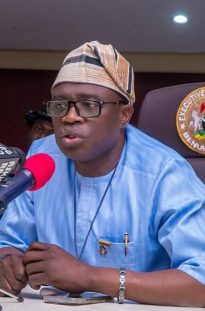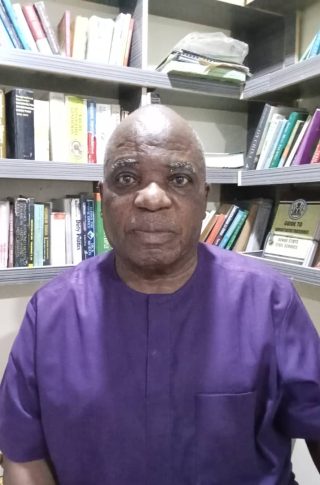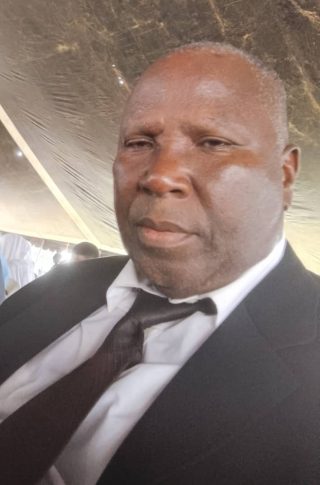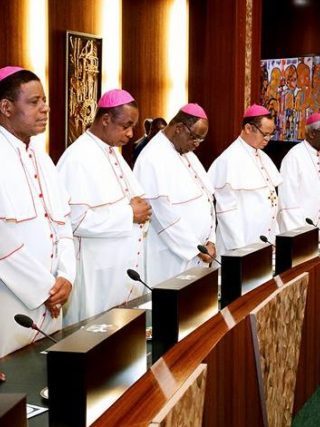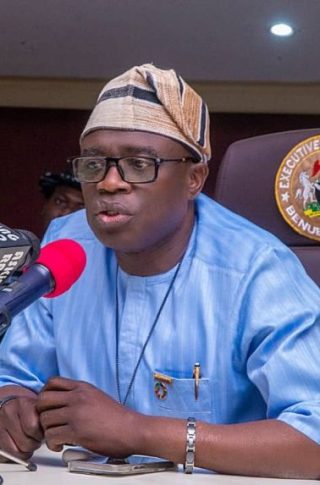
University of Mkar Security Roundtable: Clergy, Academia, and Leaders Unite to Demand End to Bloodshed in North Central Nigeria
In a deeply moving and urgent call for unity and action, leaders from across religious, academic, and governmental spectrums gathered at the University of Mkar, Mkar in Gboko, Benue State on Thursday, June 5, 2025, for the 20th Anniversary Security Roundtable. The event, themed “Insecurity in North Central Nigeria: Understanding the Causes and Charting a Sustainable Path to Peace”, formed a major highlight of the university’s two-decade milestone.
Moderated by Most Rev. Isaac Bundepuun Dugu, the roundtable brought together a host of eminent figures including His Excellency, Rev. Fr. Hyacinth Alia, Governor of Benue State; His Royal Majesty, Prof. James Ortese Ayatse, the Tor Tiv, CFR; Senator George Akume, Secretary to the Government of the Federation; members of the National and State Assemblies; traditional rulers; Christian leaders; scholars; and civil society representatives.
In his opening remarks, Rev. Dugu emphasized that the worsening insecurity in Nigeria—especially in the North Central zone—can no longer be left to the government alone. “The pangs of insecurity in general cannot be left in the hands of the Government, Traditional Rulers, and the Church only. It is our collective responsibility,” he declared, citing the Chinese proverb: “If you want to walk fast, walk alone; but if you want to walk far, walk together.”
The moderator hailed the University of Mkar and the NKST Synod for their enduring commitment to education and moral leadership in Benue and Nigeria at large. He described the roundtable as a gift to the North Central region, symbolizing unity, dialogue, and collective responsibility.
The aims of the roundtable were made clear:
To unearth the root causes of insecurity.
To raise awareness of shared challenges.
To generate actionable recommendations for all stakeholders.
To establish a platform for sustained dialogue.
To produce a Plan of Action (Instrumentum Laboris) for practical follow-up by government and community leaders.
Rev. Dugu noted that despite the numerous summits and forums previously held across the country, the necessity of this particular gathering was rooted in faith and moral obligation. Quoting Ezekiel 3:17, he reminded attendees of their divine duty as watchmen to raise the alarm and speak truth to power: “We shall say the same thing differently—and just maybe this time around, everyone will hear.”
Touching on the current state of security in North Central Nigeria, he lamented that the region—once Nigeria’s agricultural heartland—is now associated with fear, bloodshed, and humanitarian crises. He cited stark figures from Benue alone:
Over 500 killed by bandits in the past year,
More than 200 kidnapped,
Thousands of homes destroyed, and
Millions in ransom paid.
He warned that coordinated attacks by armed herders, ethnic cleansing, and systemic inaction from authorities have turned states like Benue into “epicenters of genocide.”
On the causes of insecurity, the moderator cited a breakdown in leadership across the board—traditional rulers, politicians, religious leaders, and security agencies alike. “We have failed on the maxim: ‘If you see something, say something; if you hear something, do something.’”
In a scathing critique, he questioned why a state like Benue—home to the 72 Army Battalion, Tactical Air Command, and various federal and state security outfits—continues to reel under relentless attacks with little accountability or results. “There has not been any single case of an arrest of herders, let alone prosecution,” he noted with anguish.
The roundtable, he concluded, was not just an academic exercise but a moral, civic, and spiritual intervention in nation-building. Calling on attendees to “engage with love, generosity, and sincerity,” he urged them to rise above fear and complacency, saying, “If you think it does not affect you, very soon it will be your turn—and we would all perish together. This should not happen!”
The session featured a panel of discussants from various professional fields, each offering robust contributions and engaging in deep dialogue, all aimed at forging a unified, community-driven strategy against the rising tide of violence and insecurity.
In closing, Rev. Dugu quoted the Prophet Isaiah: “Come now, let us reason together” (Isaiah 1:18)—a final plea for collective action, mutual respect, and a renewed commitment to peace.

About The Author
You Might Be Interested In



